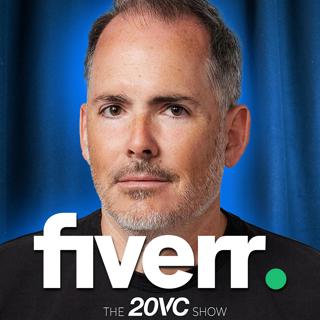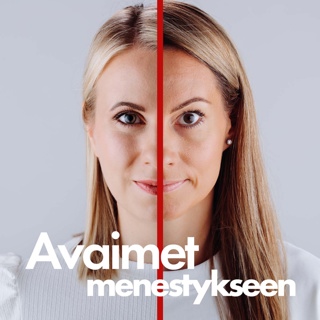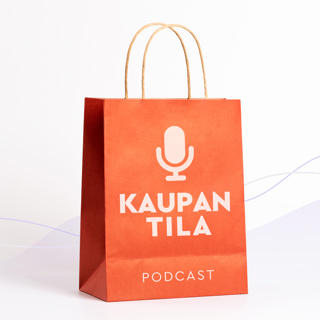
20VC: True Ventures' Puneet Agarwal on Why EQ Is Going To Separate The Best Firms In Venture Over The Next Decade, The Negatives of Attribution in Venture & What Makes A Truly Efficient Venture Partnership
Puneet Agarwal is a Partner @ True Ventures, one of the leading early-stage VC funds of the last decade with big wins including Fitbit, Peloton, Ring, Hashicorp, Duo Security and Blue Bottle Coffee, just to name a few. As for Puneet, at True he has led deals in Duo Security, Tray.io, Lumity, Solo.io and more. Before the world of VC, Puneet spent 6 years in product management with Geodesic Securities and BEA. Before product management, Puneet actually cut his teeth in the world of VC as an associate at Mayfield which he joined post a 2-year stint at JP Morgan. In Today's Episode You Will Learn: 1.) How Puneet made his way into the world of venture from JP Morgan? How seeing the boom and bust cycle impacted his investing mindset today? How his career in operations led to his joining True? 2.) Why does Puneet believe that EQ is going to separate the good from the great in venture firms over the next decade? What can VCs do to remove the barriers to access them? What have been Puneet's biggest lessons on what it takes to build real relationships of trust and respect with founders? What is a test of a strong founder <> VC relationship? 3.) What does Puneet believe are the 2 feelings a board member can bring to a board meeting? Why would an investor bring fear to the board meeting? Why is this a sign and result of the culture of their own venture partnership? What have been Puneet's biggest lessons on how investors can bring the feeling of safety to a board meeting? How has Puneet changed his style of board membership over the last decade? 4.) Why does Puneet strongly advocate for a venture structure without attribution? What are the benefits of not having attribution? How does this also impact the re-investment decision-making process? How does Puneet think about how he spends his time across the portfolio? What have True done to optimise the investment decision-making process? Why is unanimity not required? 5.) How does Puneet and True think about portfolio construction today? What amount of initial checks give them enough diversification to feel comfortable but also enough reserves to double down? Does Puneet believe that ownership can be built over time? Where does Puneet believe there is a whole in the funding environment? How does True think about minimizing risk on the first check? Items Mentioned In Today's Show: Puneet's Fave Book: Billion Dollar Whale: The Man Who Fooled Wall Street, Hollywood, and the World Puneet's Most Recent Investment: Upsie As always you can follow Harry, The Twenty Minute VC and Puneet on Twitter here! Likewise, you can follow Harry on Instagram here for mojito madness and all things 20VC.
12 Elo 201942min

20VC: Hiten Shah on The Right Way To Think About Depression, Control and Burnout, Why Nobody Really Knows What They Are Doing and How One Should Receive Advice As A Result & How To Gain Self-Awareness As A Leader
Hiten Shah is the Co-Founder @ FYI, the startup that allows you to find your documents in 3 clicks or less. Before FYI, Hiten co-founded QuickSprout alongside Neil Patel, together they scaled the platform to over 500,000 readers every month. Before QuickSprout, Hiten was the Co-Founder and CEO of KISSmetrics, raising over $19m in the process for the company from the likes of True Ventures, Uncork Capital and Felicis Ventures just to name a few. Finally, Hiten is also the Co-Founder @ Crazy Egg, the heat mapping tool used by thousands to improve the effectiveness of their websites. Finally, Hiten is also an angel investor with a portfolio including Buffer, Clearbit, Front, Gusto and more incredible companies. In Today's Episode You Will Learn: 1.) How Hiten made his way into the world of startups, growth market and SaaS and how that led to his co-founding FYI today? Having founded multiple startups, does Hiten agree with Joe Fernandez @ JoyMode that "serial entrepreneurship is overrated"? Why does Hiten believe that fundamentally, nobody knows what they are doing? 2.) How does Hiten feel about the compression of fundraising timelines today? How does Hiten advise founders on building authentic relationships with investors? What is it crucial that founders understand about the investing class? How does Chetan advise founders on building hype and urgency within their fundraising? What works? What does not? 3.) Why does Hiten believe that we have seen the eradication of the friends and family round? What other large trends has Hiten observed in the early stage over the last few years? How does Hiten advise founders on how to approach which seed investors they take on board? Does Hiten think founders and investors can be friends? 4.) How has Hiten seen himself change and evolve as a leader over the last decade? What have been the biggest learnings on what great leadership really means? What are the 5 core elements that all great leaders must focus on? How does he split his time across these 5 disciplines? Where do founders often not spend adequate time among the 5? 5.) How does Hiten think about the element of "burnout" and depression today? Has Hiten ever felt burned out himself? How does this stress manifest itself? How does Hiten think that burnout and control are correlated? What can one do to change their relationship to control? What has worked for Hiten? What has not? Items Mentioned In Today's Show: Hiten's Fave Book: The Courage To Be Disliked As always you can follow Harry, The Twenty Minute VC and Hiten on Twitter here! Likewise, you can follow Harry on Instagram here for mojito madness and all things 20VC.
9 Elo 201949min

20VC: Benchmark's Chetan Puttagunta on The One Question To Ask When Analysing Market Size, How To Compete in Today's War for Talent & Why We Have Seen An Over-Rotation In Running Businesses Based on Metrics
Chetan Puttagunta is a General Partner @ Benchmark, one of the most successful funds of the last decade with a portfolio including the likes of Uber, Twitter, Dropbox, WeWork, Snapchat, StitchFix, eBay and many many more. As for Chetan, at Benchmark he has led deals in the likes of Duffel, Sketch and Pachyderm. Before Benchmark, Chetan was a General Partner @ NEA where he led investments in Elastic, MongoDB and Mulesoft to name a few. In Today's Episode You Will Learn: 1.) How Chetan made his way into the wonderful world of venture, came to invest in Mulesoft and Elastic and how that led to becoming a GP with Benchmark today? 2.) How does Chetan feel about the push to run businesses based on metrics and benchmarks relative to other companies? What are the metrics they should hone in on? What are the metrics they should disregard? How does Chetan advise his portfolio on the right way to view competition? What is core to analysing competition effectively? 3.) How does Chetan assess the "war for talent" in terms of startup recruiting today? How do the very best CEOs recruit the best talent to their team? Who has done this best from Chetan's portfolio that comes to mind? How much weight does Chetan place on references? What should one watch out for with references? 4.) With the rise of remote, does Chetan believe that a startup even has to have an office in SF today? How does Chetan think about the "tribal knowledge" that remains within the valley? What does Chetan advise his companies that are not in the valley and contemplating it? What works? What does not? 5.) How does Chetan think about market size today when considering new opportunities? Where does Chetan think most managers go wrong when assessing TAM? How does Chetan think about time allocation across the portfolio? What have been his biggest lessons on managing his time effectively as an investor and board member? Items Mentioned In Today's Show: Chetan's Fave Book: Shoe Dog: A Memoir by the Creator of NIKE Chetan's Most Recent Investment: Duffel As always you can follow Harry, The Twenty Minute VC and Chetan on Twitter here! Likewise, you can follow Harry on Instagram here for mojito madness and all things 20VC.
5 Elo 201931min

20VC: Why Passion Is Overrated When It Comes To Starting Companies, Why VC Is Overrated As A Financing Mechanism & Why You Should Never Sell Your Company with Waseem Daher, Founder & CEO @ Pilot
Waseem Daher is the Founder and CEO @ Pilot, the startup that takes care of your bookkeeping from start to finish so you can focus 100% on making your business succeed. To date, Waseem has raised over $58m in funding from some of the very best firms and people in the business including Index, Stripe, Okta's Frederic Kerrest, Gusto's Josh Reeves, Stripe's Patrick and John Collison and Lola's Paul English, just to name a few. As for Waseem, Pilot is the 3rd business he has founded with his co-founders, the first being Ksplice and the second Zulip, which was acquired by Dropbox in 2014. He has also enjoyed spells with the likes of Oracle and Dropbox in the interims. In Today's Episode You Will Learn: 1.) How Waseem made his way into the world of startups over 15 years ago and how that lead to his founding of Pilot today, changing the world of accounting? Does Waseem agree with Joel Fernandez at JoyMode that "serial entrepreneurship is overrated? What has Waseem done differently this time as a result of his 2 prior founding experiences? 2.) Why does Waseem believe that "passion is overrated when it comes to starting companies"? If passion is not fundamental, what does Waseem believe is fundamental to ensuring one sticks the course? How does Waseem think about the craft of company building as a passion in itself? 3.) What is it about Waseem's relationship with his 2 co-founders that makes it so successful for the third time around this time? What do they do to ensure that unity and trust remains? Where do they have weaknesses and flaws in the co-founding relationship as a result of it's maturity? What advice does Waseem give to newer co-founding partners? 4.) Waseem has previously said that "VC is overrated". What does he mean by this? How does Waseem think about the decision to bootstrap vs to raise VC? What are Waseem's biggest lessons when it comes to investor selection? How much of a role does brand play? What core questions should the founders ask the VC? 5.) What does Waseem mean when he says, "never sell your company"? What were his biggest lessons from exiting two companies to Oracle and Dropbox? How did it shape his thinking on M&A and exits? How has Waseem seen his role scale and develop as a leader and as CEO? What are the biggest challenges he has found in his personal scaling? Items Mentioned In Today's Show: Waseem's Fave Book: Harry Potter As always you can follow Harry, The Twenty Minute VC and Waseem on Twitter here! Likewise, you can follow Harry on Instagram here for mojito madness and all things 20VC. Smart executives and business owners know that harnessing the power of AI, embracing the cloud, and prioritizing cybersecurity are the cornerstones of growth. Every day, Wrike helps thousands of companies worldwide do this by revolutionizing how they approach work. Our secure, automated,cloud-based work management tool helps businesses future proof their cultures and evolve fast. How? Wrike 's award-winning, collaborative, all-company platform keeps everything in one easily-accessible space. Time to embrace next-gen work management at the executive level and encourage lean thinking from the top down. With Wrike, crushing your objectives and mitigating risks at scale is a cinch. Give Wrike a try for free.
2 Elo 201931min

20VC: Former Tinder CPO Brian Norgard on His Biggest Product Takeaways from Launching the Top Grossing App in the World, The Top 10 Reasons Why Products Fail Today & How The Best Founders Assess Risk and Use It
Brian Norgard is the Former Chief Product Officer at the top-grossing mobile app in the world, Tinder. In less than 3 years, Tinder created over $11Bn in market value and with Brian's creation of Tinder Gold, Superlike and Boost, the platform has seen over 200m downloads and created millions of matches. Prior to Tinder, Brian founded Tappy, a mobile messaging application backed by Kleiner Perkins and acquired by Tinder. Before that, Brian built one of the fastest-growing Facebook applications in history (Chill) which reached over 30MM people. Fun fact about Brian also, at 25, Brian was the youngest GM/VP in the history of Rupert Murdoch's News Corp after the acquisition of his first company Newroo where he served as the GM of MySpace News. If that was not enough, Brian is also a prolific angel investor with investments in Tesla, SpaceX, AngelList and Coinmine. In Today's Episode You Will Learn: 1.) How Brian made his way into the world of startups and came to be the youngest VP at News Corp at the tender age of 25? How did that lead to his becoming CRO then CPO @ Tinder? 2.) What is the No 1 reason that products fail today? What can founders and designers do to retain the simplicity of product over time? How does complexity change the product experience? Why does Brian believe that product experience is an art? Bring in science, to what extent does Brian believe testing and iteration is key to success in product? How does one know how long is enough time to test for vs too short and not enough data? 3.) When thinking about distribution, what does Brian look for in the way that people describe a product to their friend? How does Brian think that the most successful products bake distribution into the core user behaviour? How does Brian think about community building around product? Who has done this best in Brian's mind? 4.) How should the very best founders and product people think about product risk? How can they know when to use risk to their advantage vs be mindful of excessive risk? On the features themselves, how important is it for a product to be 10x cheaper/faster etc? Why does Brian believe that is largely VC jargon? 5.) What were Brian's biggest takeaways from launching Tinder Gold and seeing Tinder become the Top Grossing App in the world? How does that sort of event also impact the team? How does Brian think about whether one should celebrate those moments or push forward to the next goal? Items Mentioned In Today's Show: Brian's Fave Book: The Old Man and The Sea As always you can follow Harry, The Twenty Minute VC and Brian on Twitter here! Likewise, you can follow Harry on Instagram here for mojito madness and all things 20VC. Smart executives and business owners know that harnessing the power of AI, embracing the cloud, and prioritizing cybersecurity are the cornerstones of growth. Every day, Wrike helps thousands of companies worldwide do this by revolutionizing how they approach work. Our secure, automated,cloud-based work management tool helps businesses future proof their cultures and evolve fast. How? Wrike 's award-winning, collaborative, all-company platform keeps everything in one easily-accessible space. Time to embrace next-gen work management at the executive level and encourage lean thinking from the top down. With Wrike, crushing your objectives and mitigating risks at scale is a cinch. Give Wrike a try for free.
26 Heinä 201934min

20VC: IA Ventures' Jesse Beyroutey on Game Theory and How It Impacts Investor Mindset, How To Avoid "The Pressure To Deploy" Today In Venture & Why Ownership Is The Single Most Important Parameter When Investing
Jesse Beyroutey is a General Partner @ IA Ventures, one of the top-performing early-stage funds of the last decade. Their incredible portfolio includes the likes of TransferWise, DataDog, Digital Ocean, X.ai and The Trade Desk, just to name a few. As for Jesse, his investments at IA include Digital Ocean, IronClad, TransferWise, Sight Machine and more fantastic companies. Prior to joining the world of venture, Jesse studied Systems Engineering at the University of Pennsylvania. In Today's Episode You Will Learn: 1.) How Jesse made his way into the world of VC pretty much straight out of University and how that led to his being a GP with IA today? 2.) What is Game Theory? What does it mean to Jesse and how does it impact his investing mindset today? How does Jesse think about and assess startup positioning today? How important is positioning in the early days of the company? How does Jesse think about data as a sustainable moat or not? Does Jesse think in today's excess supply of capital environment that cash alone can be a moat? 3.) How does Jesse and IA think about portfolio construction today? Does Jesse ever feel the "pressure to deploy"? How have IA structured their own fundraises to ensure they never feel that pressure? How important a role does ownership play for Jesse when making an investment? Does Jesse believe ownership is built on first check? 4.) How does Jesse assess his own price sensitivity? How has it changed over the last 8 years? How does Jesse and IA approach both investment decision-making and reserve allocation decisions? How does the lead rely on the rest of the team when making decisions? Why does capital efficiency become a core question when determining reserve allocations? 5.) Why does Jesse feel that the reading to writing ratio that currently exists between founders and investors needs to change? What should the ratio be? How does the relationship between founder and investor change when the investor provides more content? How does Jesse look to avoid news cycles in the week? What works? What does not? What is Jesse's advice for anyone looking to do the same? Items Mentioned In Today's Show: Jesse's Fave Book: 7 Powers: The Foundations of Business Strategy Jesse's Most Recent Investment: Gauntlet As always you can follow Harry, The Twenty Minute VC and Jesse on Twitter here! Likewise, you can follow Harry on Instagram here for mojito madness and all things 20VC.
22 Heinä 201935min

20VC: Gitlab Founder, Sid Sijbrandji on Lessons From Scaling from 400 to 1,000 People in 1 Year, Why You Have To Have A Low Level Of Shame On The Product You Release & The Secret To Making Remote Work So Effectively At Scale
Sid Sijbrandij is the Founder & CEO @ Gitlab, a single application for the entire software development lifecycle. From project planning and source code management to CI/CD, monitoring, and security. To date, Sid has raised over $145m in funding for Gitlab from the likes of GV, August Capital, YC, Khosla and Goldman Sachs just to name a few. What is incredible, Sid has scaled the team to over 762 team members across 55 countries and is famed for his openness and transparency on how he builds both the product and company. You can find the fantastic Gitlab handbook here. In Today's Episode You Will Learn: 1.) How Sid made his way into the world of startups, learned Ruby in the early days and came to found Gitlab? What was that a-ha moment? 2.) In 2019 Gitlab is growing from 400 to 1,000 people, what are the biggest challenges that come with such operational growth? How does one hire at such pace and retain quality? How does Sid think about the right way to onboard new employees? How does Sid think about KPI and goal setting in the early days? 3.) Today all 750 Gitlab employees are remote, what does Sid believe is the secret to making remote teams work at scale? How does Sid think about the balance between fast shipping cadence and perfect product releases? Why does Sid believe, "you have to have a low level of shame on the product you release"? 4.) How does Sid think about operating Gitlab as a totally transparent company? What does that mean both in reality and in process? Why does Sid believe it is optimal to have a roadmap that is open for everyone to see? What are the pros? What are the cons of such transparency? How do competitors respond? 5.) If every great business is bundling or unbundling, where does Sid believe he and Sid are in the process today? How does Sid think about being too much to too many people? How does the open-source community really come into play in the development of Gitlab? Items Mentioned In Today's Show: Sid's Fave Book: High Output Management As always you can follow Harry, The Twenty Minute VC and Sid on Twitter here! Likewise, you can follow Harry on Instagram here for mojito madness and all things 20VC.
19 Heinä 201925min

20VC: Zoom From Series A to IPO, How VCs Can Provide CEOs with Additional Leverage and Why The Negative Effects of Signalling Are Very Real with Santi Subotovsky, General Partner @ Emergence Capital
Santi Subotovsky is a General Partner @ Emergence Capital, one of the valley's leading venture firms of the last decade focusing on enterprise & SaaS applications. Within their incredible portfolio is the likes of Salesforce, Zoom, Box, Veeva Systems, SuccessFactors and many more. As for Santi, he has led deals in the likes of Zoom, Crunchbase, Clearbanc, Top Hat and Chorus.ai to name a few. Before Emergence, Santi founded AXG Tecnonexo, a SaaS e-learning company in Argentina which he expanded to 150+ employees across Latin America and the U.S. Santi is also a founding board member of Puente Labs, an organization that helps founders of Latin American high-potential growth companies scale their businesses globally. In Today's Episode You Will Learn: 1.) How Santi made his way from founding a Latin American EdTech business to being one of the valley's most successful investors of 2019 with Zoom's IPO? What was the biggest barrier he faced when getting into VC? How did he overcome it? 2.) What does Santi believe his superpower as an investor is? What did Santi see in Eric Yuan and the 30 person team at the time that made him believe they would be successful? What made how Eric thinks about presents product so special? What did the relationship building process look like between Eric and Santi in the early days? 3.) How does Santi like to work with his portfolio companies? How does Santi think about time allocation across the portfolio? Why does Santi believe it is crucial to not just spend time with the CEO but the exec team also? Where does Santi most like to provide value and leverage to the CEO? Why does Santi believe all VCs are just sales reps? 4.) Why does Santi believe that a vertically focused fund is the optimal strategy to pursue today? What are the benefits? What are the drawbacks? How does Santi think about the obvious overlap between consumer and enterprise today? With the thematic focus, how does Santi think about loss ratio and batting average? How does Emergence approach the element of both ownership and price? Where do they optimise? 5.) With larger and larger funds, how does Santi see the future of venture? Why does he believe that we will see vertically focused capital-as-a-service? What does this look like in reality? Is Santi concerned by the extended window of privatisation that is now present in today's capital markets? How concerned is Santi by the compression of fundraising timelines and what does that to investor <> founder relationships? Items Mentioned In Today's Show: Santi's Fave Book: Candide by Voltaire Santi's Most Recent Investment: Openpath As always you can follow Harry, The Twenty Minute VC and Santi on Twitter here! Likewise, you can follow Harry on Instagram here for mojito madness and all things 20VC.
15 Heinä 201940min






















